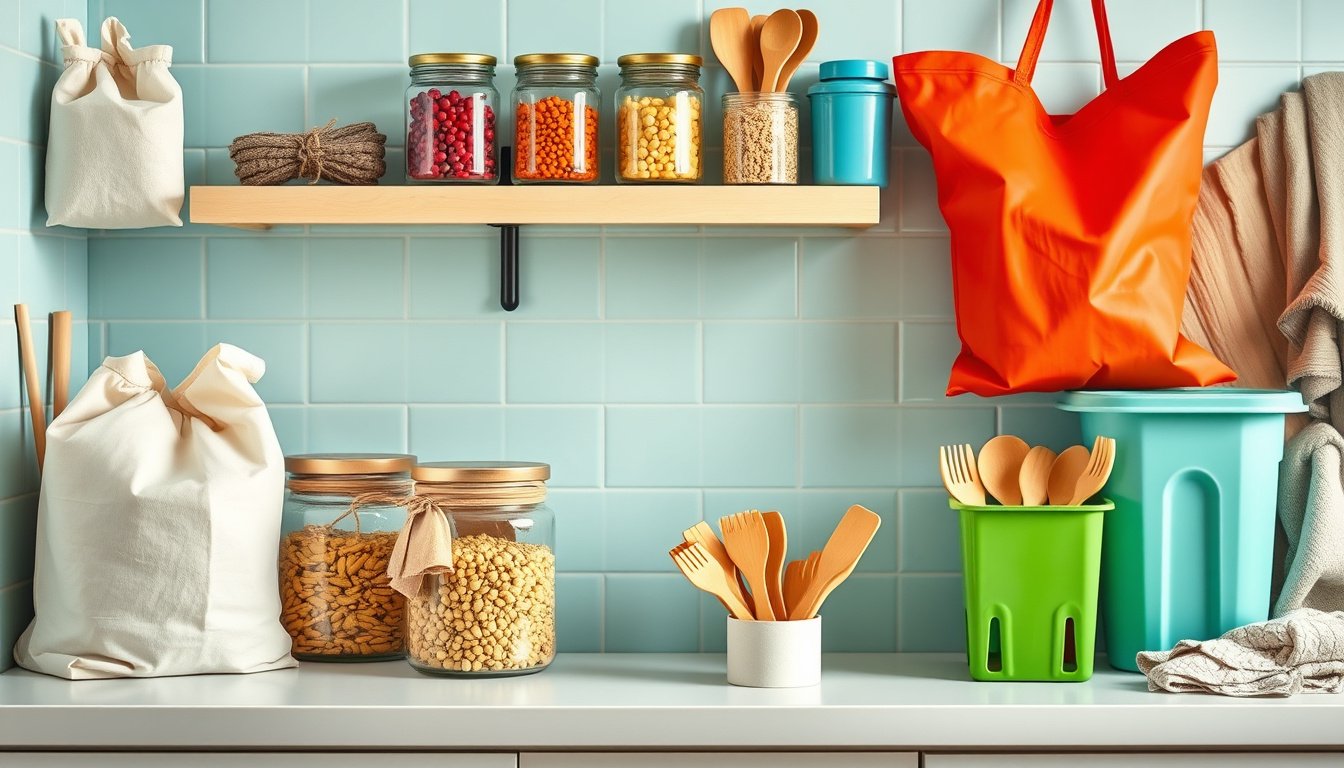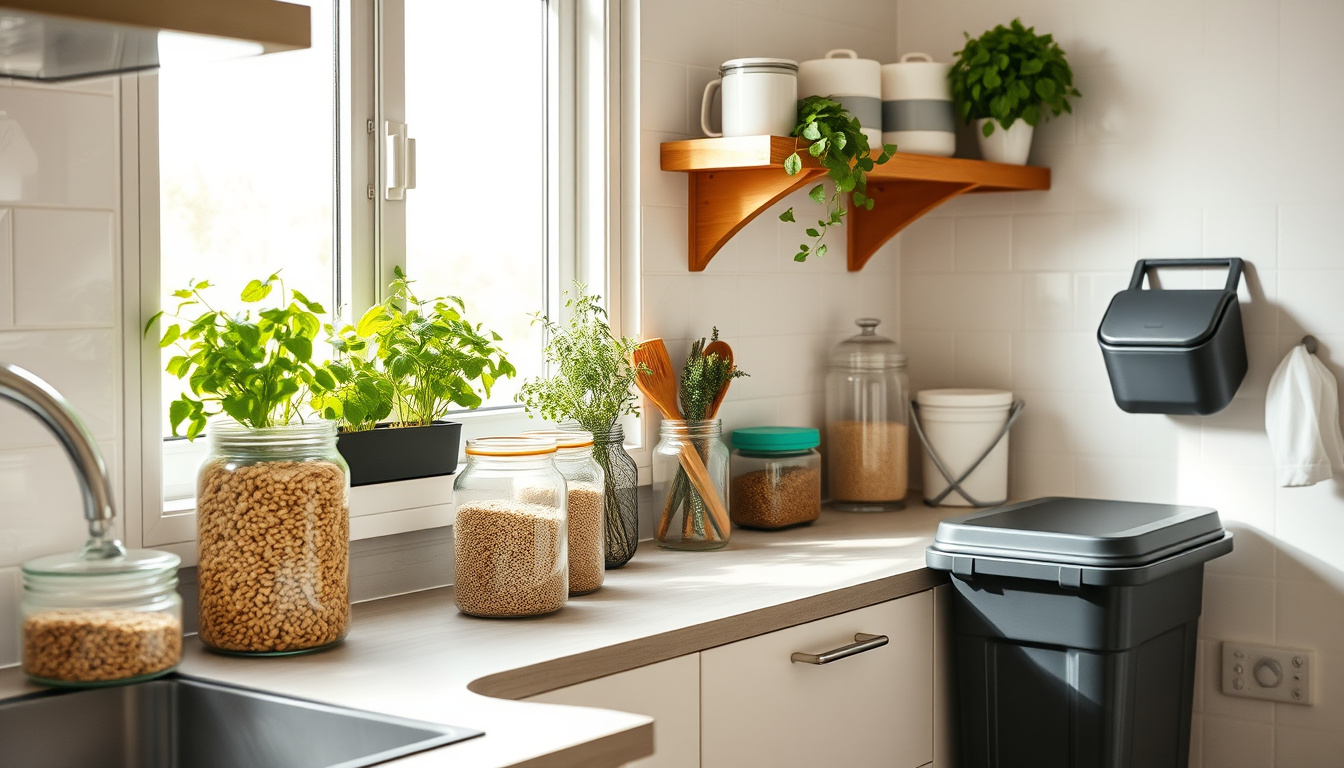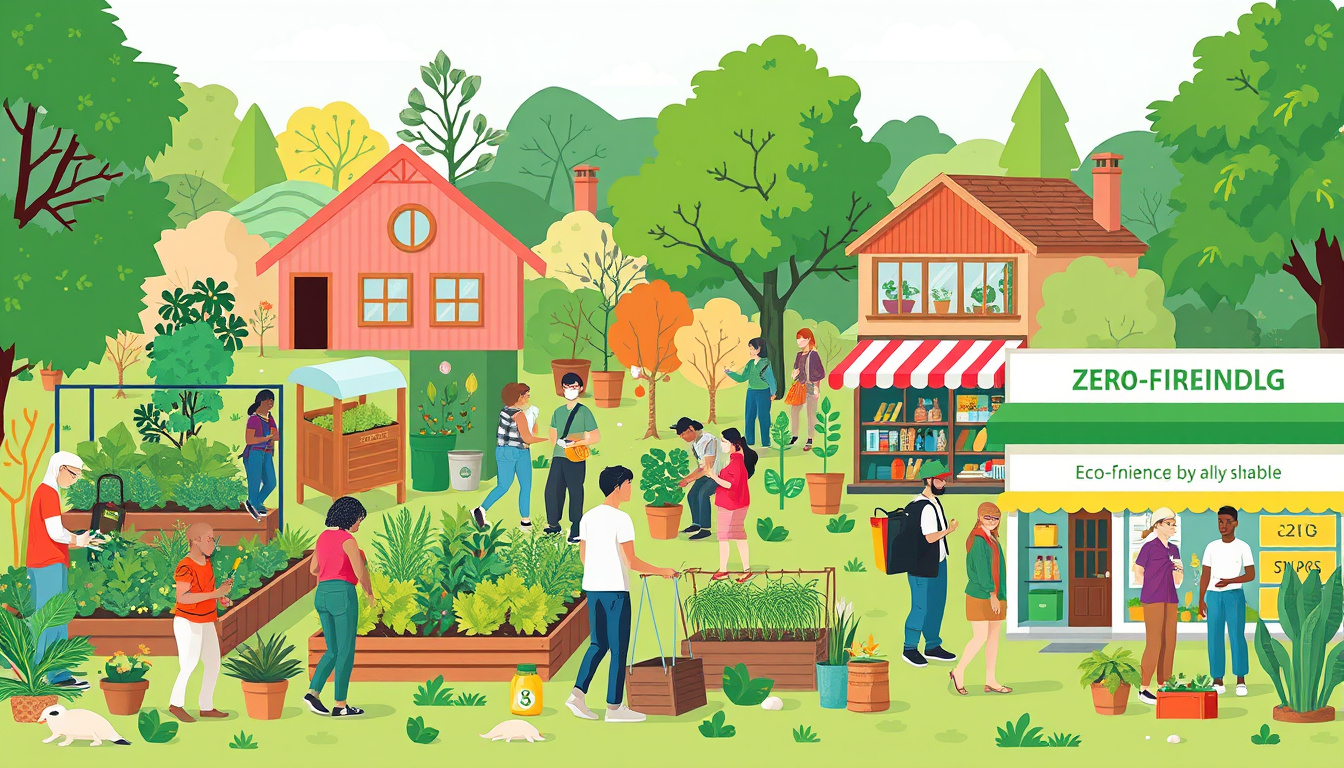In a world increasingly dominated by environmental concerns, adopting a zero-waste lifestyle has emerged as not just a trend but a sustainable practice that many are embracing. Aimed at minimizing waste and reducing our carbon footprint, the zero-waste lifestyle encourages mindful consumption and encourages individuals to rethink how they interact with products in their everyday lives. In this article, we’ll explore some easy swaps for beginners to help ease into the zero-waste philosophy, transition their kitchens, make sustainable fashion choices, and build a community around this important cause.

Key Takeaways
- Adopting a zero-waste lifestyle promotes sustainability and reduces environmental impact.
- Simple swaps like using reusable bags and containers can significantly cut down on waste.
- Transitioning your kitchen by composting and choosing bulk items helps reduce single-use plastics.
- Sustainable fashion choices, such as thrift shopping or buying from eco-friendly brands, support a zero-waste ethos.
- Building a community around zero-waste practices fosters collective efforts and shared resources.
Understanding the Zero-Waste Philosophy
The zero-waste lifestyle is more than just a trend; it embodies a profound shift towards sustainability and conscious consumerism. At its core, the zero-waste philosophy advocates for reducing the amount of waste we produce to as close to zero as possible. For beginners looking to adopt a zero-waste lifestyle, making easy swaps is an excellent starting point. One of the simplest changes you can make is to replace single-use plastics with reusable alternatives; for instance, swap out plastic water bottles for a stainless steel one, or use cloth bags instead of plastic when shopping. Additionally, consider composting organic waste to minimize landfill contributions, which not only helps reduce garbage but also enriches the soil. By implementing these easy swaps, you can begin your journey toward a sustainable, zero-waste lifestyle while inspiring others to do the same.
Simple Swaps for Everyday Products
Adopting a zero-waste lifestyle can seem daunting, especially for beginners. However, making simple swaps for everyday products is a fantastic way to ease into this sustainable practice. Start by replacing your plastic water bottles with a reusable stainless-steel bottle; not only does this cut down on waste, but it also ensures you’re drinking from a safe, non-toxic container. Consider transitioning from conventional paper towels to cloth napkins or reusable cleaning rags – they are just as effective and can significantly reduce your household waste. Another easy swap is to choose bar soap instead of liquid soap in plastic containers; it often comes with minimal or no packaging at all. Additionally, replace your traditional toothbrush with a bamboo one; this biodegradable option helps reduce plastic waste while maintaining the effectiveness of your oral hygiene routine. These easy swaps for beginners not only contribute to a zero-waste lifestyle but also promote sustainable habits that can be easily integrated into your daily routine. Making these changes gradually ensures a smoother transition and encourages a more conscious approach to consumption.
‘The greatest threat to our planet is the belief that someone else will save it.’ – Robert Swan

Transitioning Your Kitchen to Zero-Waste
Transitioning your kitchen to a zero-waste lifestyle can seem daunting, but with easy swaps for beginners, it can also be an enjoyable and rewarding experience. Start by evaluating your current kitchen supplies and identify single-use items that can be replaced with sustainable alternatives. For instance, instead of using plastic wrap, consider investing in beeswax wraps or silicone lids that can be reused countless times. Ditch disposable paper towels in favor of cloth rags or reusable kitchen towels, which not only cut down on waste but are often more absorbent. Additionally, make the switch to glass or stainless steel containers for food storage, as they are more durable and eco-friendly than plastic. By implementing these simple changes, you are not only minimizing waste but also embracing a zero-waste lifestyle that promotes sustainability and environmental consciousness. As you continue exploring more zero-waste practices, you’ll discover that each small change contributes to a larger impact.
Sustainable Fashion Choices
In recent years, the concept of a zero-waste lifestyle has gained traction, particularly within the realm of sustainable fashion choices. For beginners looking to make a positive impact on the environment without overwhelming themselves, there are several easy swaps that can be seamlessly integrated into everyday life. One of the most effective methods is to transition from fast fashion to sustainably-produced apparel, where brands focus on quality materials and ethical practices. Additionally, embracing second-hand shopping not only reduces waste but also allows you to find unique pieces that tell a story. Another simple yet impactful swap is to invest in a capsule wardrobe, which consists of versatile clothing items that can be mixed and matched, significantly reducing the need for excessive purchases. By adopting these zero-waste lifestyle tips, you can contribute to a more sustainable future while still expressing your personal style.

Building a Zero-Waste Community
Building a zero-waste community begins with a conscious effort to adopt a zero-waste lifestyle, and for beginners, making easy swaps can significantly reduce waste and promote sustainability. Start by replacing single-use plastic bags with reusable cloth bags for shopping; this simple change can drastically lower plastic consumption. Next, consider investing in stainless steel or glass containers instead of disposable plastic ones for food storage, as these materials are not only more durable but also better for your health. Another essential swap is switching to bar soap and shampoo bars instead of liquid products in plastic bottles. This not only cuts down on packaging waste but often results in a longer-lasting product. Finally, incorporate reusable items like bamboo utensils, metal straws, and cloth napkins into your daily routine to further minimize waste. By collectively embracing these easy swaps, individuals can greatly contribute to the richness of a zero-waste community, fostering an environment where conscious living is prioritized.
Frequently Asked Questions
What is a zero-waste lifestyle?
A zero-waste lifestyle focuses on reducing waste to a minimum, aiming to live sustainably by using resources efficiently and recycling all materials.
What are some easy swaps for everyday products?
Some easy swaps include using reusable shopping bags instead of plastic ones, bamboo toothbrushes instead of plastic, and stainless steel straws instead of disposable ones.
How can I transition my kitchen to a zero-waste space?
You can start by using glass containers for storage, composting food scraps, buying package-free groceries, and avoiding single-use items like paper towels.
What are sustainable fashion choices that support a zero-waste lifestyle?
Sustainable fashion choices include buying second-hand clothing, opting for brands that use eco-friendly materials, and swapping clothes with friends instead of buying new items.
How can I connect with others who are interested in a zero-waste lifestyle?
You can build a zero-waste community by joining local zero-waste groups, participating in online forums, or attending workshops and events focused on sustainability.
